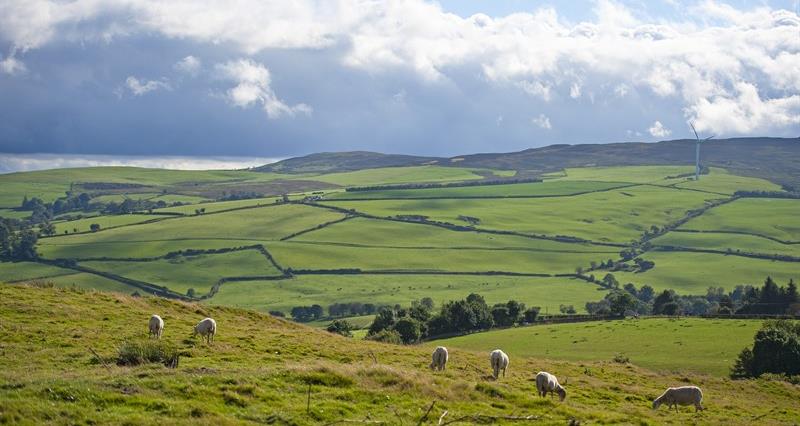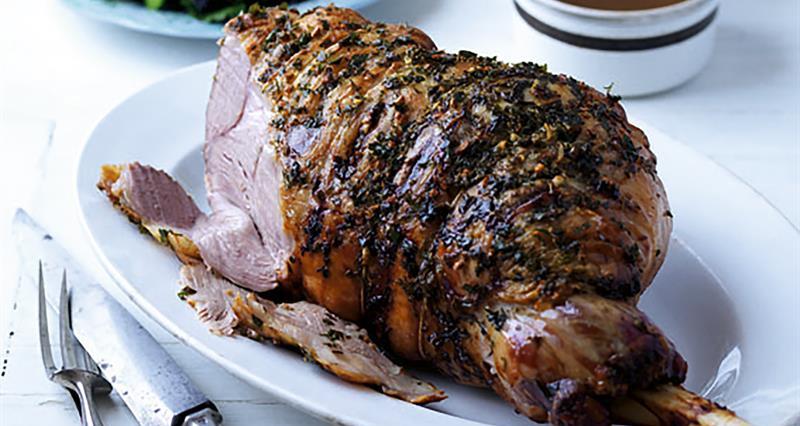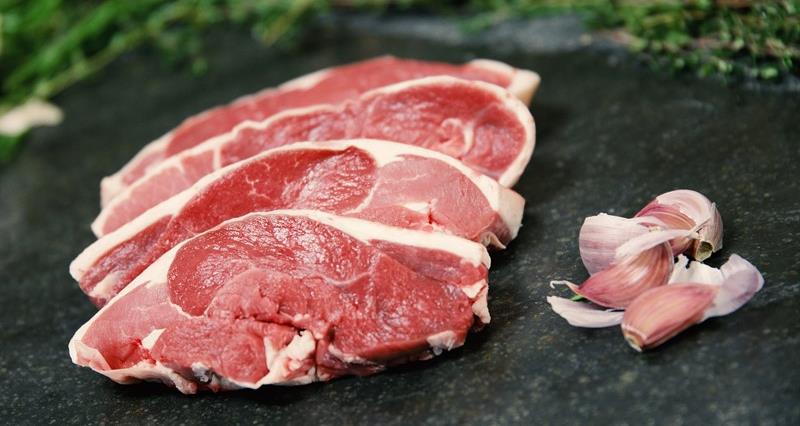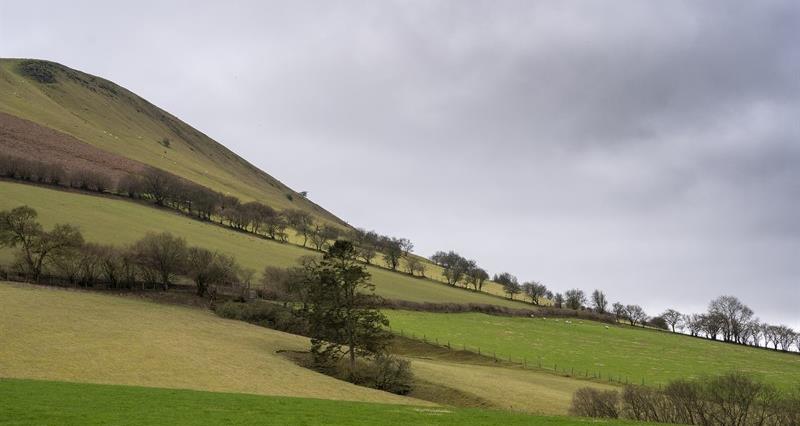Sheep farming has played a fundamental role in protecting the environment and sculpting landscapes that attract millions of tourists every year. Perhaps most importantly, it has fed generations of people with a sustainable supply of delicious and nutritious protein produced via the natural assets that Wales is blessed with an abundance of – terrific grass growth and plentiful rainfall. Indeed, Hybu Cig Cymru’s (HCC’s) Welsh Way research has proven that the ruminant livestock sector in Wales has one of the lowest carbon footprints in the world.
National dish of Wales
While Welsh lamb has been unofficially heralded as the national dish of Wales for some time, in 2003 the special qualities of this popular meat were officially recognised with a Protected Geographical Indication (PGI) status, protecting the distinct characteristics of lamb reared in Wales.
Families have long-enjoyed traditional favourites such as a wholesome bowl of lamb cawl or a succulent leg of lamb for roast dinner. The versatility of this meat means consumers can enjoy everything from lamb burgers on the BBQ to tender lamb shoulder diced in a curry. Welsh lamb is not only enjoyed across the length and breadth of Wales, it is extremely popular across the UK. It is also arguably our most iconic export enjoyed by consumers across Europe, the Middle East and we are now seeing new markets open up in Japan and the USA.
Although lamb prices are currently sitting just above the five-year average, the more immediate future is troubling with the current price farmers receive significantly down on last year.
Perfect storm
This has coincided with the impacts that the war in Ukraine and rising inflation have had on the sheep sector, with the price index for farm inputs such as feed, fuel and fertiliser increasing by 22% in the last 12 months. As you can imagine, this ongoing price volatility and uncertainty has meant it is costing farmers considerably more to produce the food consumers know and love. These increased costs at the same time as reduced market prices feel like a perfect storm for many sheep producers.
Another issue affecting sheep farmers at present is an increase in the amount of chilled New Zealand lamb that is now hitting the UK market. HMRC import figures suggests that New Zealand lamb imports to the UK have increased by 10% this year and this is placing further pressure on the market, particularly given that some of the 2022 UK lamb crop is still making its way onto the market.
Backtrack on British commitment
Around 70% of all UK lamb sales go through the UK's major supermarkets, however we are now seeing a disappointing situation where the retailer Aldi has backtracked on its long-term commitment on British lamb sourcing. While it is important to state that Aldi will continue to stock British lamb and will retain its commitments to source 100% British fresh poultry, beef and pork lines as well as maintaining 100% British lamb mince, the retailer’s decision to resile on its commitment to stock only British lamb, replacing some of its home grown-climate friendly lamb with products with significant food miles is, nevertheless, very disappointing.
Market shifts of this nature could put lamb producers in a difficult position. Lamb production isn’t a tap that can be turned off and our farmers have already made breeding decisions that will impact the size of their flocks and the type of lamb they produce. PGI Welsh Lamb is recognised worldwide and it’s vital that retailers also recognise this, especially during challenging times.
Proud of what we produce
We are rightly proud of what we produce. We do, however, have very real concerns about the effect that all these variables could have on Welsh family sheep farms which contribute to Wales’ biggest employment pool and help underpin a food and farming sector that is worth over £8 billion annually to the Welsh economy.
Turning to government, it’s crucial that UK Government ensures future trade deals are balanced, while also delivering opportunities for Welsh agri-food exports. There are opportunities out there to further grow the market for great tasting, climate friendly PGI Welsh Lamb, as demonstrated by the market inroads that have been developed in the USA and Japan. The appointment of eight new agri-food attaches should also go some distance to helping us access new markets and new consumers. HCC has recently been promoting PGI Welsh Lamb at trade shows at home and abroad. We hope to see these export efforts bearing more fruit soon.
Closer to home, Welsh Government is taking the Agriculture (Wales) Bill through the Senedd this year. NFU Cymru believes this landmark legislation provides a once-in-a-generation opportunity to look in detail at how future agriculture policy can continue to underpin sustainably produced, climate-friendly Welsh food and support our rural communities.
NFU Cymru will continue to work to understand the challenges and opportunities facing the lamb sector in these difficult market conditions, meeting with representatives across the supply chain. Most importantly, we ask consumers to continue supporting the nation’s sheep farmers by choosing local, climate friendly PGI Welsh Lamb reared to world leading animal welfare and environmental standards.




